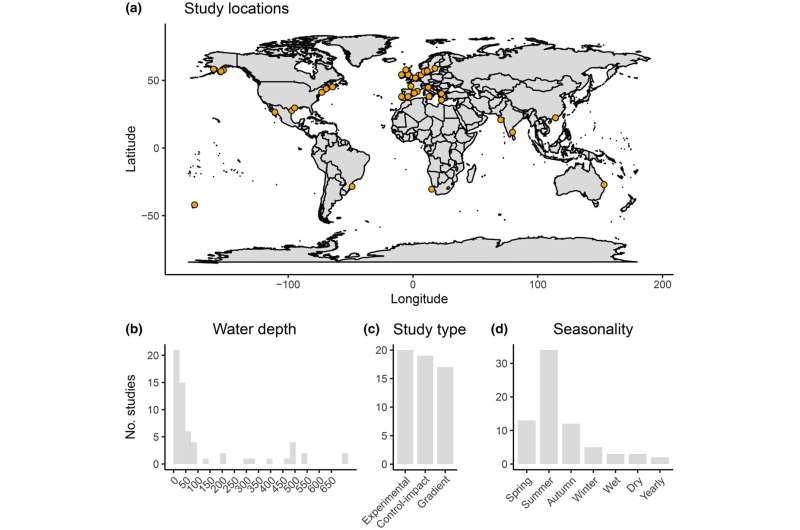This article has been reviewed according to Science X's editorial process and policies. Editors have highlighted the following attributes while ensuring the content's credibility:
fact-checked
peer-reviewed publication
trusted source
proofread
Global study shows demersal fishing affects ocean floor carbon storage

Scientists are growing increasingly concerned about the impact demersal fishing is having on climate change and the preservation of organic carbon stored in the seabed.
According to a new study, co-authored by Dr. Marija Sciberras, an Associate Professor at The Lyell Center, a Global Research Institute for Earth and marine sciences at Heriot-Watt University, newly deposited organic matter on the seabed was significantly reduced due to seafloor fishing activities, suggesting that, in the short term, trawling may accelerate the process that turns organic carbon to CO2.
"The study emphasizes the necessity for tailored management approaches if seabed carbon is to be protected effectively," says Dr. Marija Sciberras.
The international study, published in the journal Fish and Fisheries, analyzed the findings of 71 independent studies to create a global database that harmonizes existing knowledge to explore the complex relationship between demersal fishing and seabed carbon.
The globally relevant research contributes valuable insights and impact estimates, which are essential for informing decision-making and the formulation of regulatory measures aimed at minimizing the adverse effects of demersal fishing on marine environments.
Dr. Sciberras said, "Seafloor organic carbon plays a key role in carbon sequestration and storage, and the impact from fishing disturbance was found to vary significantly with local hydrodynamics and environmental conditions such as primary productivity.
"It is important to understand that the effects of demersal fishing on carbon are not the same everywhere. The study emphasizes the necessity for tailored management approaches if seabed carbon is to be protected effectively."
The long-term implications on seabed carbon sequestration and storage processes, particularly the disturbance of older carbon deeper than 2 cm (including refractory and semi-labile carbon), remain uncertain, as the overall effect on total organic carbon content was more variable among regions, highlighting a key knowledge gap.
More information: Justin Tiano et al, Global meta‐analysis of demersal fishing impacts on organic carbon and associated biogeochemistry, Fish and Fisheries (2024). DOI: 10.1111/faf.12855
Journal information: Fish and Fisheries
Provided by Heriot-Watt University





















